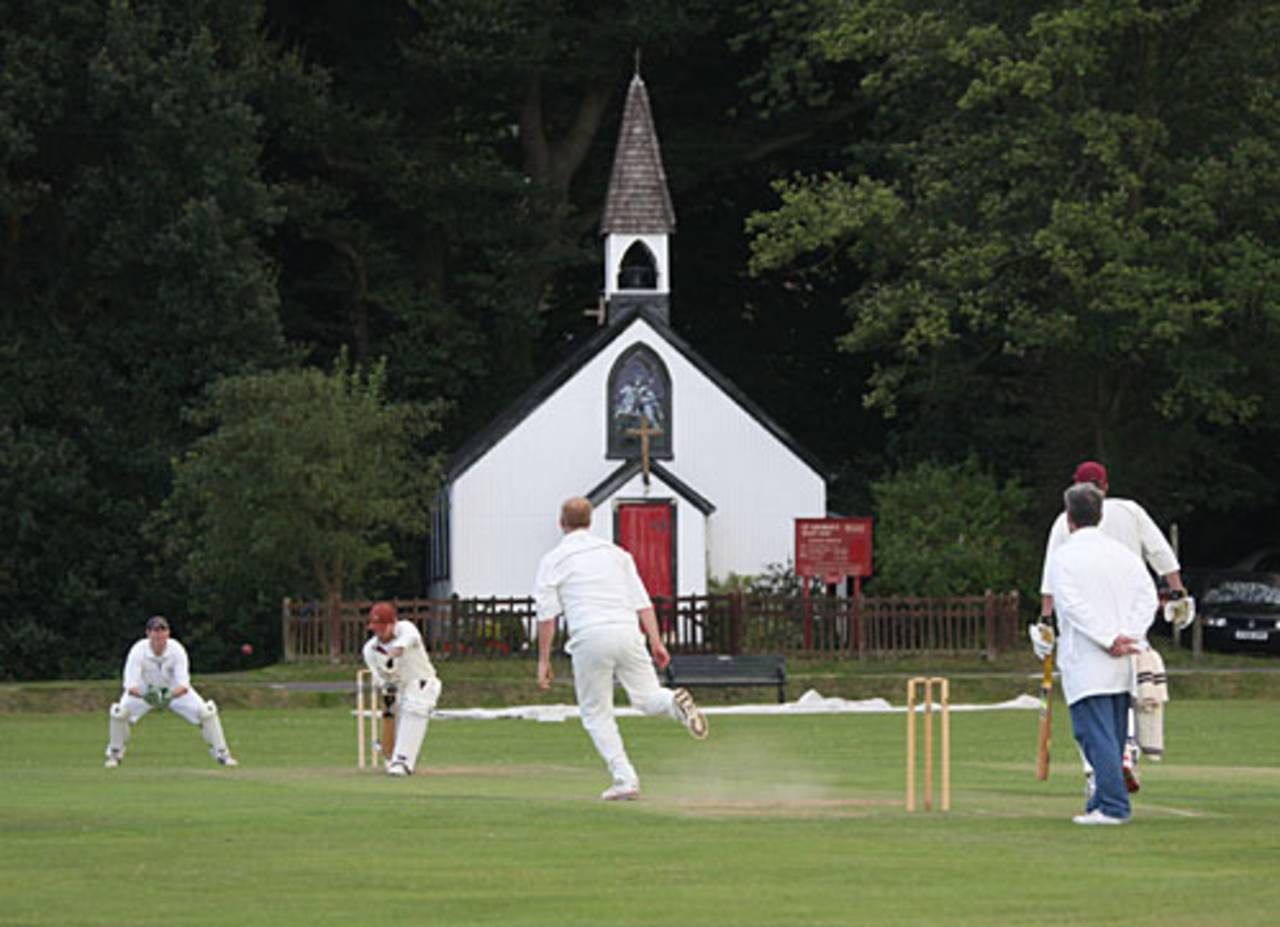ECB hit by fall in participation numbers
Participation levels in recreational cricket across England and Wales have fallen over the last year according to figures released by the ECB
George Dobell
Nov 19, 2014, 10:53 PM

There has been a decline in the number of players participating in recreational cricket • Martin Williamson
Participation levels in recreational cricket across England and Wales have fallen over the last year according to figures released by the ECB. The number of players aged between 14 and 65 dropped from 908,000 in 2013 to 844,000 this year, with more than 5% of games conceded because at least one of the clubs was unable to field a side.
The figures were obtained through 37,500 responses from recreational cricketers to this year's National Playing Survey together with detailed analysis of more than 1.2 million scorecards.
While there is some mitigation - 70% of amateur cricket is played on Saturdays and only 15 Saturdays were rated "dry" in 2014 compared with 20 in 2013; there was also a football World Cup in 2014 - the figures will fuel the suspicion that the game is losing relevance and popularity in England and Wales.
The results come weeks after it emerged that the average attendance for the relaunched NatWest T20 Blast had fallen despite a marketing drive designed to double spectator numbers. Crowd figures at the Royal London One-Day Cup were hardly overwhelming, either.
These new figures may also increase pressure on the ECB and Sky to review the current broadcast arrangements for professional cricket. The ECB's strategy over recent years has been to compensate for the lack of cricket on free-to-air TV by investing heavily in grassroots scheme and development programmes. The survey results would suggest that method is not working as planned.
The last broadcast deal covered the period up to the end of 2017 and provided Sky an option for a further two years. As part of current discussions, the possibility of some cricket being shown on free-to-air TV or free of charge on the internet is believed to be gaining traction. It is probably relevant that, during the last Ashes series in 2013-14, Sky showed some coverage on their free-to-air Pick channel, which has traditionally been used to promote new shows.
While several counties believe the TV issue is crucial to the declining participation numbers, there are probably many factors involved.
The relative lack of success of the England team - the significance of a winning England side was at the centre of many of the reforms at the ECB in the era of Lord MacLaurin - could be an issue, along with anecdotal evidence suggesting further disillusionment as a result of the Kevin Pietersen debacle, as well as high ticket prices and an international schedule that prioritises quantity over quality. In short, the period in which the benefit of short-term decisions can be felt has now expired.
Equally, the demands of time made on club cricketers may be incompatible with modern society, where men are expected to take a more active role in family life and where working patterns more often encroach on weekends.
Further analysis of the survey's findings revealed that:
- 247,000 were "core" players who play at least twelve weeks of a 26 week summer season.
Males represented 93% of the participation base, with 7% female - the same gender breakdown as in 2013. The survey also revealed that 30% of grassroots cricketers are drawn from ethnic minorities and 53% of cricketers would like to play the game more often.
"The ECB recognised the participation challenges that have been facing all team sports and we were determined to gain a greater insight into those issues and find long-term solutions," the ECB's chief operating officer, Gordon Hollins, said. "To do that the ECB changed the way in which it measured participation last year and introduced the new National Cricket Playing Survey as part of our wider efforts to gain a greater understanding of what drives grassroots cricket participation.
"Thanks to an excellent response, the ECB now has a much clearer picture than ever before of who plays recreational cricket, what type of cricket they prefer to play, when they want to play it and we are now setting about finding ways in which we can best address their needs going forward."
George Dobell is a senior correspondent at ESPNcricinfo